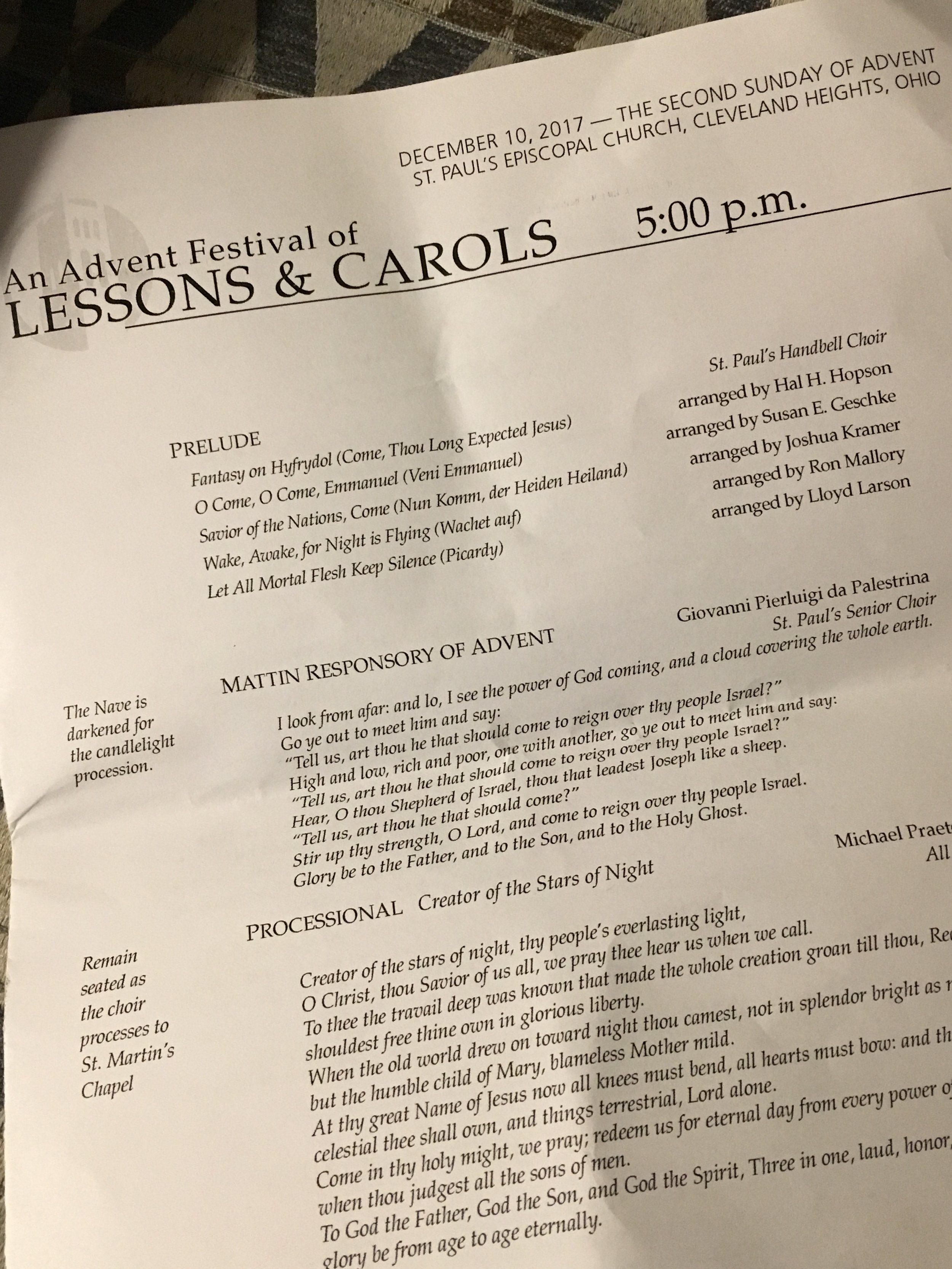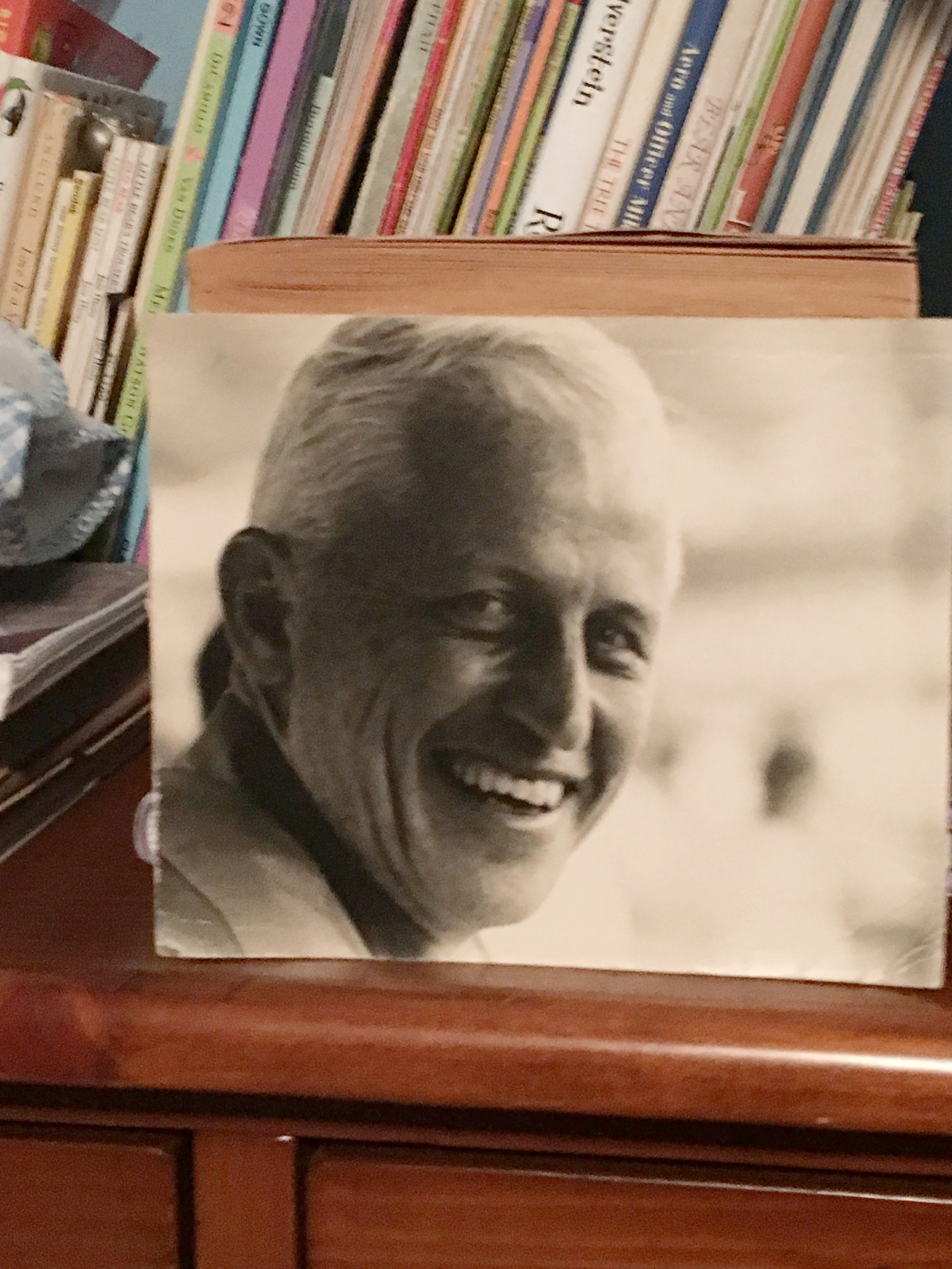Re-Union
Spring is in her glory, trees bedecked in heavy pink blossoms; lilacs bursting, purple-flowered, into bloom. The dogwoods are spectacular, delicate white and pink flowers arced across branches. Gracious field stone houses, their proportions of another era, signal wealth in their elegant stability on large emerald lawns. Azaleas flame pink and orchid across lawns, flagrant, proud. I even see a rhododendron beginning to bloom. In pots, in window boxes, in planters and in beds, pansies lift their elfin faces to the sun—yellow, blue, purple, white, orange—riotous and hardy.
“See,” the lush landscape mocks, “There is nowhere lovelier.”
I am home. No, that’s not right. This is no longer home. Home is Cleveland where I live with Seth and Atticus and all the animals. I am on the Main Line, drawn by the magnet of my 40th reunion at Agnes Irwin. Forty years? Inconceivable. Driving roads I thought I had forgotten, I marvel at how the past swims back, unbidden. I round a bend and think, “Oh, that’s the turn off for Patsy’s house." On Lancaster Avenue, I drive slowly, noting how storefronts have shifted, even since Mom died. The needlepoint store Louise’s mother ran has moved across the street into The Country Cousin, where Mother took me to buy my trousseau the spring before Seth and I got married. There is no big white horse in front of the hardware store; the building is there, but now it's a clothing store. Mr. Fish’s clock store remains, tucked in between other unfamiliar shops. Even the library is new, much more imposing and grander than the structure I recall from childhood. It's a kind of archeology; reconciling past with present. I see what exists, but translate instantly to what it used to be, seeking the contours of the familiar.
The Acme has been renovated, wholly unfamiliar, but still across from Our Lady of the Railroad Tracks. I leave, intending to turn right, but the car turns left, and in a moment, I have slipped between the two stone pillars that mark the Church of the Redeemer driveway. I park, feeling guilty that I am skipping church; instead, I walk among the gravestones, finding the flat white stones of our Vauclain family plot. I sweep some branches off of Uncle Jimmy’s gave, cluck at the discoloration of the stones, fuss that I have not thought to care for these graves since before our mother died. I find Great-grandfather and Great-grandmother, a little farther away than Grannie and PopPop and their boys. I find the little baby Jacques, his stone a smaller version of the others. What am I doing here in a cemetery on a Sunday morning? I don’t quite know. I don’t feel teary, just a little somber.
I know I will head to Orchard Lane, the house we grew up in. I creep around the bend, look up at the house, our house, now painted beige. There are no azaleas on Cooie’s Corner, no daffodils parading along the Beachboards’ iron fence. The side yard is no longer fenced for our small dogs. There’s a garden, but not where Mom’s garden was. The Japanese Maple on the corner is gone, and my eyes fill with tears. Why should that be the trigger? It’s just a tree. I’m about ten again, out in the yard, with Mom and Dad and Rod. Mom is pruning or planting. Dad is raking. It’s a spring or autumn afternoon, the air rich with soil and the smell of cut pachysandra or burning leaves or roses climbing the lattice against the garage. The voices of my family call across the lawn as we work together, companionable. I blink and am fifty-seven again, stopped too long in front of a house that no longer belongs to me, worried the family that lives there now will think I am a stalker. The dome above the front door seems different, lovelier than I remember. I see a figure move upstairs and inch forward, shaking off my reverie.
I did not come home with any sort of quest in mind, except on Friday afternoon. When I arrived, I’d gone directly to the Bryn Mawr College archives to look up information about my grandmother, Myra, Class of ’08. The collection closed at 4:30. I left, knowing I will need to come back, knowing there is more to discover, crossing the campus and trying to reconcile the image of a corseted girl of twenty in petticoats and a stiff cloth skirt and shirtwaist with today’s Bryn Mawr girls lounging on the lawns in tank tops on this sultry May afternoon.
Throughout the two days of my reunion, I travel backwards in time, skating over the loss of my mom and dad, focusing, instead, on earlier chapters. Patsy and Brooke and Hoppy--really, Mary, but we never call her that or think of her in that formal way--and I—Florida, Connecticut, Philadelphia and Cleveland—never didn't know each other—our lives were braided at AIS, at the Redeemer, at the Cricket Club. These grown women grew up knowing my family—my mom and dad and brother and sister. And I, theirs.
Over breakfast with Brooke and Patsy, I am feverish and ill. I am so excited to see them, but I can hardly keep up my end of the conversation. Afterwards, I return to my bed at my cousin’s house. I miss the actual reunion, knowing I am too sick to manage and furious at my body for letting me down—I had looked forward to the whole weekend for weeks. Lying on my young cousin's bed--she is bunking with her sister while I stay with them--both girls are at Agnes Irwin, themselves, now in ninth and fourth grade. I let my mind wander back in time: our first boy-girl parties, learning to drive, going with Brooke--who got her license before I did--to summer chemistry class, being in Brooke’s wedding. Patsy could not be at our wedding; she’d been in an accident. Hoppy moved away in 6th grade but returned for our Senior year. Patsy was the most organized person I knew. We'd all talk on the phone for hours, to our parents’ despair. How could we have so much to say after spending all day together?
I rally to go to Chris’ house for dinner. On the terrace, Hoppy greets me across the room, "Annie K. Lotz,” she calls, her dad’s nickname for me. We discuss her little sister’s desire to shed her nickname. I do not want to shed my own nickname. I like being called Annie by this crowd. Patsy tells me she has found journals from when she was thirteen in which she referred to me as ‘Klotz’. We talk about our dogs—Taffy was her Cocker Spaniel; Tina and Siggy were my miniature dachshunds. We are touching our childhoods. The presence of these women in my life at this reunion that I am too ill to enjoy feels like a gift. Hoppy tells me that at my dad’s funeral, two people asked her to get involved with a project at our Church that gave her life new purpose. I think how delighted Dad would be that he was making connections among people, even after he was gone. It touches me that she shares this story with me.
I’m deeply moved to be in the presence of about fifteen women who have known me since I was a girl. I’ve missed the ceremony in the afternoon when we honored too many of our classmates who have died, but Mrs. Kinkaid joins us at the beginning of the evening, and it is good to speak Cindy’s name, good to point to Cathy’s gorgeous face smiling up at us from the yearbook, to see Stephanie in her white blazer, Ginny standing tall, the tallest in our class for many years. Too much loss too soon.
In Chris’ cozy living room, I eat asparagus and steak next to Louise and Sarah. We are girls again, this time smart enough to know how much long friendships matter. Hoppy and I try to explain to Wendy, our headmistress and my friend, how wondrous CORE was. It is a revelation to learn that our classmates, Ann and Mary, were Miss Jenkins’ nieces; if we knew that ever, we had forgotten it. Isy and I steal a moment near the buffet. She is remarkable in her resilience. I ask about her mom. “Ninety-three is not for the faint of heart,” she answers. I am jealous of my classmates who still have their mothers, but I know, too, that their mothers are not, all of them, the versions of moms that I remember. I want to stay forever, talking with Lynne and Leslie and Ann and Chrisy and all the others, but I am fading, feverish again. The Episcopal boys arrive, and I recognize none of them, except the one who married Susan. They are not boys, of course; they are-- like us--approaching sixty, but I am mystified that I missed this chapter. The boys I hung with were theatre boys from the other boys’ school. My classmates are pleased to welcome the guys, intoxicated again by memory, crushes, possibility, who knows what. I, feeling headachy, leave too early, fall asleep melancholy, wake to the froth of cherry blossoms foaming on the tree beyond my window, feeling too full of feelings.
Schools expand to hold generations. Each era has its own specific memories, memories that are distinct to a particular time—1978, for me. Our music, our teachers, our boys, our parties, our escapes. 1908 for Grannie at Bryn Mawr and before that, Agnes Irwin, the school we shared. 2018 for my cousin’s two daughters, Our school belong to all of us. Time compresses, expands, shimmers. Spring at home is exquisite, fleeting. I revel in memory.

















